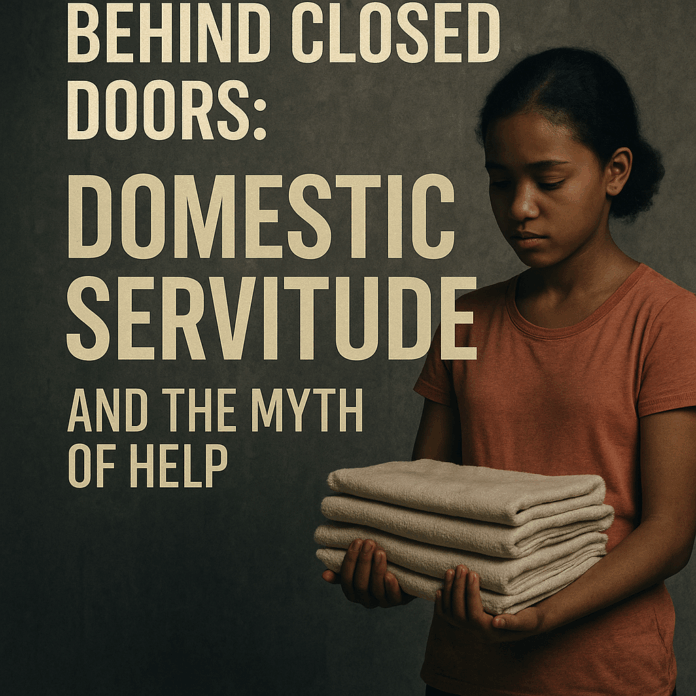Behind Closed Doors: Domestic Servitude and the Myth of Help
In quiet homes and behind locked gates, a silent form of slavery continues to thrive one that disguises itself as kindness, yet thrives on power, silence, and exploitation. Domestic servitude. Often hidden in plain sight. Often misunderstood. And too often dismissed as “help.”
At first glance, it seems like an act of goodwill. A young girl from a rural community is “brought to the city” to live with a relative or family friend. Promises are made education, a better life, safety. But behind the doors of those homes, the truth can be very different.
Instead of school, she’s washing dishes before dawn. Instead of rest, she’s scrubbing floors long past midnight. Instead of protection, she’s at the mercy of beatings, verbal abuse, and isolation. Her freedom doesn’t belong to her anymore. Her voice doesn’t either.
Read alsoUnderstanding TRAUMATIC STRESS: A Silent Struggle That Needs a Voice
This is domestic servitude, and it is a form of human trafficking.
The myth that this is “help” runs deep in many cultures. Families may say, “We’ve taken her in. She’s like one of our own.” But love does not look like unpaid labor. It does not look like denying someone their childhood, their education, or their right to rest.
Domestic servitude is especially difficult to detect. It happens indoors, away from the eyes of society. The victims often have no ID, no money, and no one to turn to. Many are children. Some don’t even know they are being exploited they’ve been told this is the way things are.
And yet, this isn’t just a rural issue or a poverty issue. It’s a power issue. A silence issue. An accountability issue.
So what can be done?
We must start by naming the problem. Domestic servitude is not help. It is exploitation.
We must stop normalizing the practice of using “house helps” as a replacement for childcare, housework, or personal comfort. If someone is not being paid fairly, not attending school, not allowed to rest, and not treated with dignity it is trafficking.
We must create safe reporting channels for victims and invest in rehabilitation, education, and community awareness. Law enforcement needs training to recognize signs of abuse, and the public needs education to challenge harmful norms.
More importantly, we need to listen to survivors. Their stories hold the key to breaking this cycle. Their voices carry truths that have been silenced for too long.
Because behind closed doors, people are suffering. And until we pull back the curtain, until we challenge the myth of help, nothing changes.
Let’s stop mistaking silence for consent. Let’s protect every child, every girl, every human being whether they live in our homes or not.
If you suspect someone is being held in domestic servitude, speak up. Reach out to your local authorities, a trusted NGO, or a trafficking helpline. Your silence protects the abuser. Your voice could save a life.




